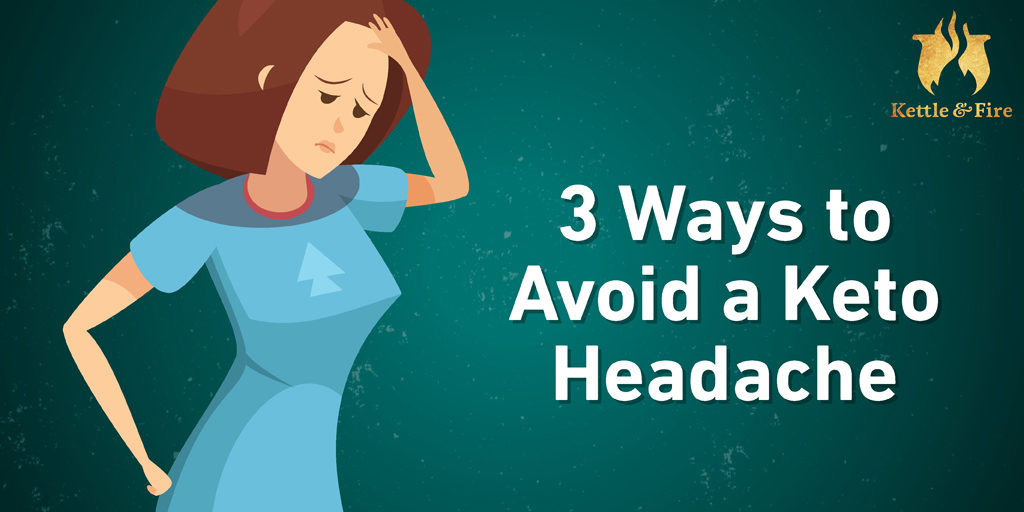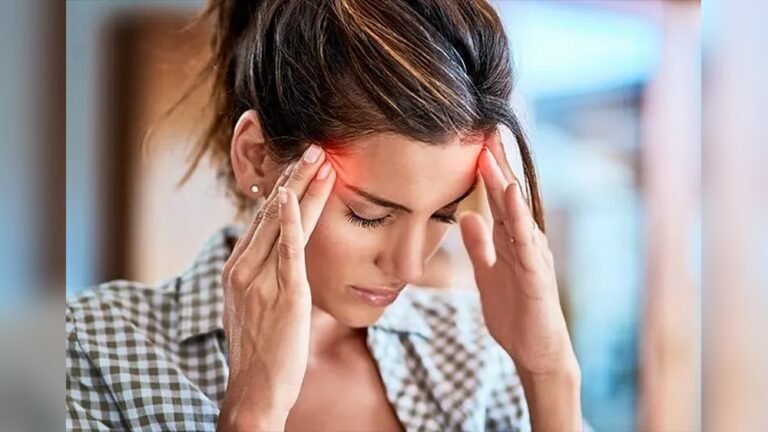Are you struggling with headaches since starting your low carb diet? You’re not alone.
Many people experience this frustrating side effect when they cut back on carbs. But why does this happen, and more importantly, how can you stop the pain and keep your diet on track? You’ll discover simple, effective ways to prevent and ease headaches caused by low carb eating.
From hydration tips to smart snacking strategies, you’ll learn exactly what your body needs to feel better fast. Keep reading to take control of your health and enjoy the benefits of your low carb lifestyle without the headache.

Credit: blog.kettleandfire.com
Causes Of Headache On Low Carb Diet
Headaches are a common complaint for many starting a low carb diet. Understanding the causes helps manage and prevent these headaches effectively. Several factors contribute to headaches during this dietary change. Knowing each cause can guide better choices and reduce discomfort.
Carbohydrate Withdrawal Effects
Cutting carbs quickly changes how your body gets energy. Your brain relies on glucose from carbs. When carbs drop, your brain adjusts to new fuel sources. This shift can cause headaches as your body adapts. Withdrawal symptoms often last a few days.
Dehydration And Electrolyte Imbalance
Low carb diets make your body lose water faster. This leads to dehydration, a common headache trigger. Electrolytes like sodium, potassium, and magnesium also drop. These minerals help nerve and muscle function. Low levels can cause headaches and fatigue.
Low Blood Sugar Levels
Reducing carbs lowers blood sugar levels. Some people experience dips that cause headaches. The brain needs steady sugar to work well. Low blood sugar can also cause dizziness and weakness. Eating small, balanced meals helps maintain stable levels.
Caffeine Withdrawal
Changing diet habits may reduce caffeine intake. Cutting caffeine suddenly often triggers headaches. Caffeine narrows blood vessels, so stopping makes them widen quickly. This change can cause pain until the body adjusts. Gradual caffeine reduction can ease symptoms.
Nutrient Deficiencies
Low carb diets sometimes limit certain foods with key nutrients. Lack of vitamins like B2, B6, and magnesium can cause headaches. These nutrients support brain health and energy production. Including a variety of low carb vegetables and nuts helps prevent deficiency.
Symptoms Linked To Low Carb Headaches
Headaches linked to low carb diets come with various symptoms beyond just pain. These signs often appear together and affect daily activities. Recognizing these symptoms helps manage and reduce headache discomfort effectively.
Fatigue And Brain Fog
Fatigue is a common symptom during low carb diet headaches. Energy levels drop because the body adjusts to less glucose. Brain fog makes it hard to focus and think clearly. Simple tasks may feel harder than usual. These symptoms often signal the need for more hydration and electrolytes.
Irritability And Muscle Cramps
Irritability can rise when the body lacks enough carbs for energy. Mood swings may occur without warning. Muscle cramps happen due to electrolyte imbalances, especially low potassium and magnesium. These cramps can cause sharp pain and discomfort. Drinking mineral-rich fluids can help ease these issues quickly.
Nausea And Dizziness
Nausea may develop along with headaches on a low carb diet. It feels like an upset stomach or queasiness. Dizziness often accompanies nausea, making balance difficult. These symptoms show that the body might be dehydrated or low in salt. Rest and proper fluid intake are key to relief.
Immediate Relief Strategies
Headaches on a low carb diet can be uncomfortable and distracting. Immediate relief is important to help you stay focused and comfortable. Some simple actions can reduce headache pain quickly. These strategies target the common causes of headaches during low carb dieting.
Hydration And Electrolyte Intake
Dehydration is a major cause of headaches on low carb diets. Drink plenty of water throughout the day. Electrolytes like sodium, potassium, and magnesium help balance fluids and nerve signals. Add a pinch of salt to water or consume electrolyte drinks. Eating foods rich in magnesium, such as spinach or nuts, supports quick relief.
Eating Balanced Snacks
Low blood sugar can trigger headaches. Eat small, balanced snacks with protein, healthy fats, and some carbs. Nuts, cheese, or a boiled egg are good options. Balanced snacks provide steady energy and help prevent hunger headaches. Avoid skipping meals to keep blood sugar stable and pain-free.
Managing Caffeine Consumption
Caffeine affects headaches in different ways. Moderate caffeine can relieve headache pain. Too much caffeine or sudden withdrawal can cause headaches. Maintain a consistent caffeine intake to avoid these issues. Reduce caffeine slowly if you want to quit. Drink herbal tea or water instead of coffee during headache episodes.
Rest And Avoiding Intense Exercise
Rest helps your body heal and reduces headache severity. Avoid intense exercise during headache episodes, as it can worsen pain. Gentle activities like walking or stretching are better. Find a quiet, dark place to relax. Deep breathing and light rest can ease tension headaches quickly.

Credit: cincinnati-gi.com
Foods That Help Prevent Headaches
Headaches often arise during a low carb diet due to changes in hydration and mineral balance. Choosing the right foods can help prevent these headaches. Certain nutrients support the body’s adjustment and keep energy levels steady. Eating well supports your well-being and reduces discomfort. Below are key food groups that help prevent headaches on a low carb diet.
Magnesium-rich Options
Magnesium helps relax muscles and calm nerves. Nuts like almonds and walnuts provide magnesium. Dark leafy greens such as spinach and kale are great sources. Seeds, including pumpkin and chia seeds, also contain magnesium. These foods support brain function and reduce headache risk.
Electrolyte-rich Foods And Drinks
Electrolytes keep your body hydrated and balanced. Salt, potassium, and sodium are important electrolytes. Avocados are rich in potassium and healthy fats. Bone broth contains natural sodium and minerals. Coconut water offers electrolytes and hydration, but check sugar content carefully.
Protein Sources For Steady Energy
Protein helps maintain stable blood sugar levels. Fresh meat, fish, and eggs are excellent protein choices. Cheese and Greek yogurt provide protein and fat. These foods prevent energy dips that can trigger headaches. Eating protein with every meal supports lasting energy.
Hydrating Fruits And Vegetables
Fruits and vegetables with high water content aid hydration. Cucumbers and celery offer water plus vitamins. Berries and watermelon hydrate and supply antioxidants. Eating these foods helps prevent dehydration headaches. Hydration supports overall health and comfort.
Long-term Prevention Tips
Headaches on a low carb diet can be frustrating and disruptive. Long-term prevention requires consistent habits and careful monitoring of your body’s responses. Establishing a routine and tracking your symptoms helps reduce headache frequency. Simple strategies can make a big difference in your daily comfort and health.
Keeping A Food And Symptom Diary
Recording your meals and headaches daily reveals patterns. Note what you eat, drink, and any headache symptoms. This diary helps identify specific foods or habits that trigger headaches. Over time, you can adjust your diet to avoid these triggers. A detailed diary is a powerful tool for managing headaches.
Consistent Meal Timing
Eating meals at regular times prevents blood sugar dips. Skipping meals or eating irregularly often causes headaches. Set fixed times for breakfast, lunch, and dinner. Small, healthy snacks between meals can also keep energy levels steady. Consistency in eating supports your body and reduces headache risks.
Consulting Nutrition Professionals
Nutrition experts provide personalized advice to suit your needs. They help balance your diet while following low carb guidelines. Professionals can spot nutrient gaps causing headaches and suggest fixes. Regular check-ins ensure your plan remains effective. Expert guidance improves long-term diet success and headache prevention.
Regulating Calorie Intake
Eating too few calories can trigger headaches and fatigue. Make sure your calorie intake matches your activity level. Avoid drastic calorie cuts that stress your body. Balanced calories support brain function and prevent headaches. Monitoring portion sizes and energy needs helps maintain proper intake.
When To Seek Medical Advice
Headaches are common when starting a low carb diet. Most go away as your body adjusts. Some headaches need medical attention. Knowing when to seek help can keep you safe. This section guides you on when to see a doctor.
Persistent Or Severe Headaches
Headaches lasting more than a few days need a doctor’s check. Severe pain that stops daily activities is a warning sign. Sudden, intense headaches require immediate medical care. Do not ignore constant or worsening headaches.
Symptoms Outside Normal Adjustment
Watch for symptoms beyond headache, such as vision changes or weakness. Nausea, confusion, or dizziness with headaches are serious. These signs might mean a health problem unrelated to the diet. Seek medical advice if you notice these symptoms.
Professional Dietary Guidance
Consult a dietitian for proper low carb diet planning. They help avoid nutrient shortages that cause headaches. A professional can adjust your diet safely and improve your health. Getting guidance reduces risks and supports long-term success.

Credit: www.groovyketo.co.uk
Conclusion
Headaches on a low carb diet often stem from dehydration or low blood sugar. Drinking water and eating balanced snacks can ease pain quickly. Including magnesium-rich foods may also help reduce headaches. Tracking meals and symptoms helps find personal triggers.
Keep caffeine steady to avoid withdrawal headaches. Consult a dietitian for a safe, headache-free low carb plan. Taking these simple steps supports your health and comfort on the diet.


